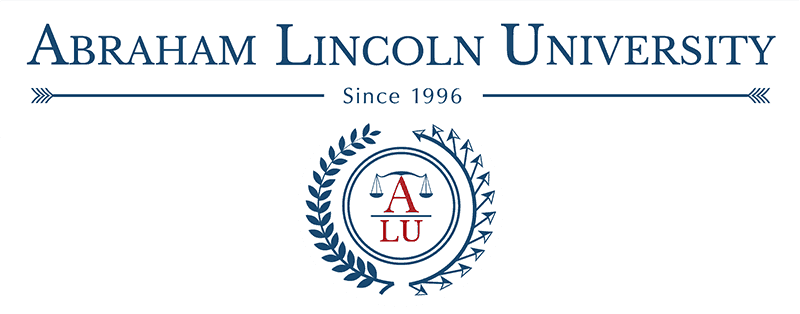Paul Young graduated from Abraham Lincoln University School of Law in 2007. He’s now a busy, successful attorney and private investigator with his own law firm focused on judgment enforcement. I was thrilled to talk to him about his career and his time at ALU and to bring you his bits of wisdom.
What made you want to study law?
I was a tradesman, a plumbing contractor, when I was a victim of embezzlement. I went from not knowing any lawyers to being directly involved with six. Being a tradesman, I didn’t think well of lawyers. But I got to know these people because of the embezzlement. All of them turned out to be excellent and very good people who helped me quite a bit.
I started thinking about what I wanted to do in life. I was getting towards middle age, and I thought I’d like to help victims of white collar fraud and theft. I had never gone to college, and I found out that [at that time] ALU allowed people to take the CLEP test [College Level Examination Program], so I challenged my way into ALU, and that’s how I got started and that’s what made me want to go. I wanted to become an educated person and help victims of fraud.
What did you decide to do with your JD?
Now I do judgement enforcement — when people win a law suit and they are not paid, I enforce those judgments. Most of the judgments involve fraud or theft. I have one right now for a drugging and rape and luckily it was caught on film. Other judgments are for Ponzi schemes, business fraud, or elder abuse.
I do some fraud litigation. When someone has just recently stolen something from my client, I can use prejudgment remedies to take their property and empty their bank accounts and hopefully resolve the matter more quickly rather than waiting two years for a law suit to come to its conclusion. Along with being an attorney, I’m a private investigator. I’m almost always working on behalf of people who were caught up in a fraud scheme. I hopefully ensure my clients are made whole.
What was the transition like between studying law and practicing law?
When you go to a school like ALU, you might not be recruited by huge law firm. But I rented a law office and with help from friends and practice guides and treatises and clerks who tell you how to do things and do them right and through trial and error, I learned—I learned how to do things right and well. But it’s a real transition. Law school is very relevant. [On the job, you’re] thinking about the same things you learned back in law school, about res judicata, offer, acceptance, consideration, about things you learned your first two weeks in Contracts. These issues arise frequently. What I learned at ALU, I put into use every day. But at the same time, moving from law school to the practice of law is very different. No law school, even Harvard, teaches you to practice. You have to find mentors and learn. I practice in a very narrow area of law and you’re doing the same things every day and you get better. You go to court and you lose and you say, “I’ll never do that again,” and after a while you improve.
What was your experience like at ALU?
I loved it. I felt that I was lucky to be there. I surrounded by people who had bachelor’s degrees. I was there and felt honored and privileged to be there and took it very seriously. I had a bit of an inferiority complex but it helped me—I had to prove I belonged there. I enjoyed it. You have success on a midterm or final and you pass the baby bar and you get into the upper years, and you learn how to study and prepare and do well and you grow as a student, you work hard and you see the results. The people, the professors, the support team—they were very helpful and part of the reason why I made it. I love the school. I went to the physical campus and I used the online feature when I was on vacation for business. I would watch the archived lectures.
Did you feel you had a community at ALU?
Absolutely. To this day they are some of my very dear friends. They [recently] threw a birthday party for me. We see and speak to and refer each other. During school, we had study groups and we did bar review together. There was a lot of support.
What advice would you give current and future ALU students?
The things you are learning you will use. Knowing these things helped me with cases. It’s very important to pay attention in class and learn. Paying attention and learn the law and doing what it takes are important, not just for the bar exam. All of law school is prep for the bar exam. But it’s important thereafter. I’ve been told when people go to undergrad, you can cram, check out mentally or otherwise, but you can’t do that in law school. When you read, you have to read with understanding. Come prepared to class, pay attention, don’t fall behind. You really have to know [the material]. That’s different than a cram session. Some classes required thirty hours a week of study while others require ten. Be prepared to do what it takes to succeed and keep up.
Representing clients is an honor. You get to go to court and fight for them and make things better. People come to lawyers because something has gone wrong. I love what I do especially when it goes well for my client. I get to make a client whole who has been taken advantage of. It’s great work. It’s important to take the learning process seriously so you can do a good job when you do become a lawyer.






